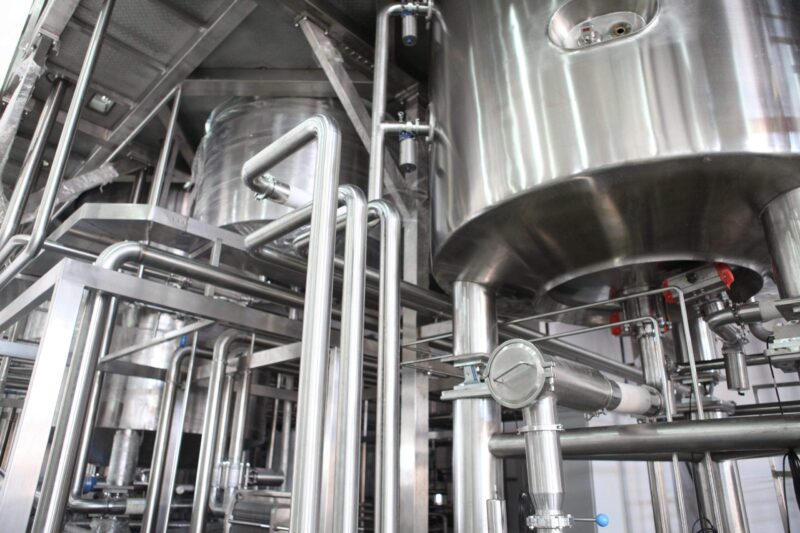Boiler steelvirgamet.com: The resilience and effectiveness of boilers are inextricably linked to the caliber of materials employed in their construction. In this comprehensive guide, we embark on a journey into the realm of boiler steel, unraveling the myriad facets that render it an indispensable component in boiler manufacturing and maintenance.
Grasping the Significance of Boiler Steel
Boilers find extensive application in power plants, factories, and municipal heating systems, operating in demanding environments characterized by elevated temperatures and pressures. In such extreme conditions, the selection of materials becomes paramount.
The Versatility of Boiler Steel
Boiler steel, also recognized as pressure vessel steel, is a specialized steel variant engineered for deployment in these exacting contexts. Its versatility and unique attributes position it as the preferred material for an extensive spectrum of applications. (Visit Boiler steelvirgamet.com to explore more) But what precisely sets it apart?
Diverse Varieties of Boiler Steel
Boiler steel doesn’t conform to a one-size-fits-all paradigm; instead, an array of distinct varieties cater to diverse requirements. Here are some common examples:
-
Carbon Steel
- Economical over the long term, carbon steel boilers excel in environments with lower to moderate temperatures, boasting exceptional tensile strength.
-
Alloy Steel
- Fortified with a medley of alloying elements, alloy steel boasts enhanced characteristics and performs admirably under severe conditions of heat and pressure.
-
Stainless Steel
- Revered for its durability and corrosion resistance, stainless steel is employed in boilers confronting corrosive challenges, particularly in sectors like food and chemicals.
-
Duplex Steel
- Duplex steel melds the advantages of austenitic and ferritic stainless steels, rendering it robust and corrosion-resistant, an ideal choice for boiler applications.
Crucial Factors in Boiler Steel Selection
The efficacy and safety of your boiler system hinge upon the judicious choice of boiler steel. Several pivotal considerations come into play:
-
Temperature and Pressure
- Boiler steel specifications are contingent on the working temperature and pressure of the boiler. It’s imperative to ensure the selected material can withstand these conditions.
-
Corrosion Resistance
- In corrosive settings, opting for stainless steel or duplex steel can extend the lifespan of your boiler, enhancing its longevity.
-
Weldability
- The ease with which components can be welded together can impact the construction and maintenance of the boiler.
-
Cost
- Striking a balance between budget constraints and performance benchmarks is key. Carbon steel often emerges as the most cost-effective material.
Meticulous Maintenance and Inspection
Though boiler steel boasts longevity with proper care, regular inspections and maintenance are indispensable for ensuring safe operation. During assessments, be vigilant for:
-
Visual Inspections
- Routine visual checks can unveil wear, rust, or corrosion on the boiler’s surface.
-
Non-Destructive Testing (NDT)
- Techniques like ultrasonic testing are instrumental in detecting concealed flaws and weak points in steel.
-
Cleaning and Descaling
- Cleaning and descaling of boiler tubes are imperative to maintain their functionality and avert corrosion.
-
Repair and Replacement
- Swiftly address any issues uncovered during inspections to forestall further damage and ensure safety.
Conclusion
The resilience and efficiency of boilers are contingent upon the caliber of steel employed in their construction. Irrespective of whether you opt for carbon, alloy, stainless, or duplex steel, comprehending your boiler’s requisites and operational conditions is paramount. Regular maintenance and inspections are imperative to safeguard your investment and ensure operational safety. For further insights, delve into Boiler steelvirgamet.com.
FAQs
-
Is carbon steel suitable for all boiler applications?
- Carbon steel is apt for environments with moderate heat. Boilers subjected to high temperatures and extreme pressure are better constructed with alloy or stainless steel.
-
How can I prevent corrosion in my boiler system?
- Corrosion in boiler systems can be mitigated through regular maintenance (including cleaning and descaling) and the use of corrosion-resistant metals like stainless steel.
-
Can damaged boiler steel be repaired?
- While repairs to damaged boiler steel are typically feasible, it’s crucial to have any damage assessed by professionals before initiating repairs.
-
What is the typical lifespan of boiler steel?
- The lifespan of boiler steel can be prolonged with proper care, optimal working conditions, and the right steel selection. With proper maintenance, it can last for decades.
